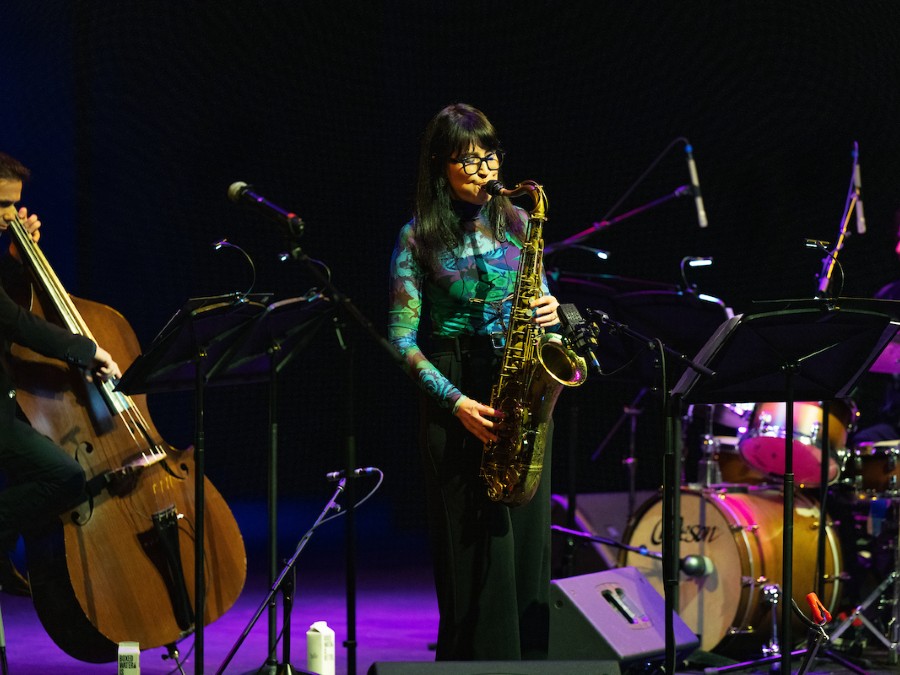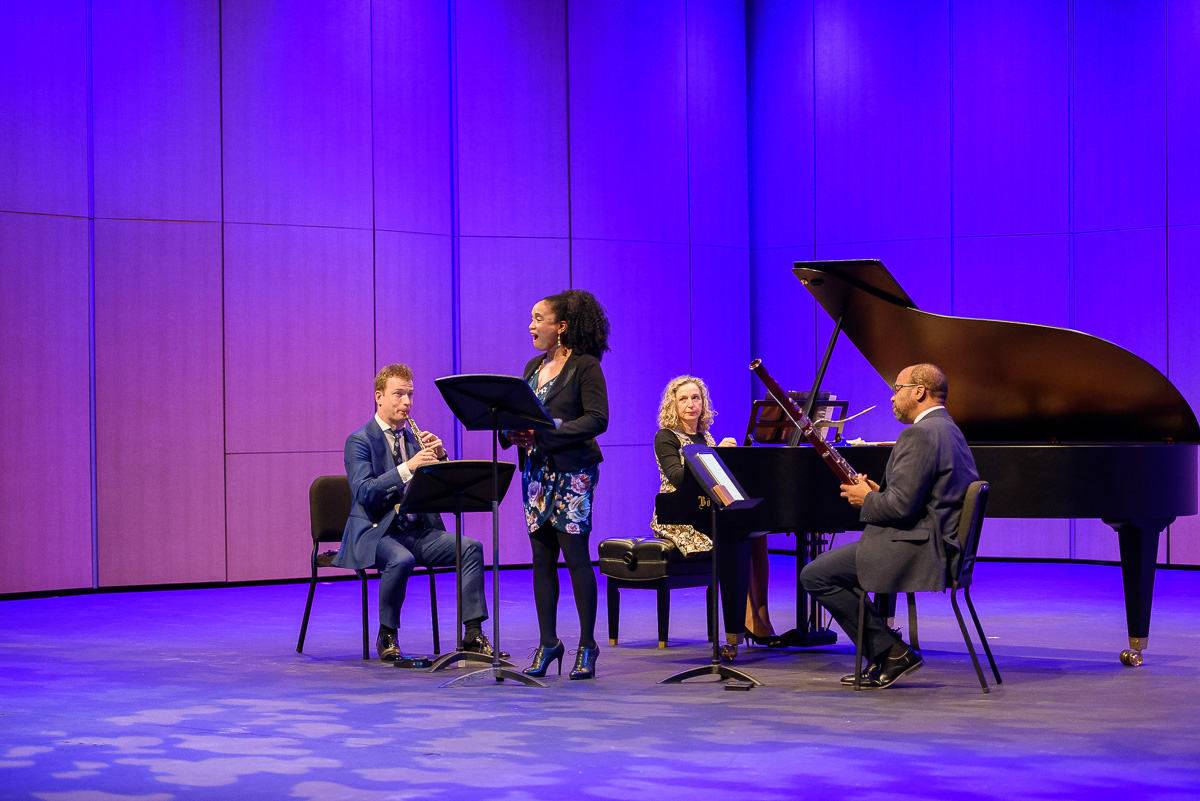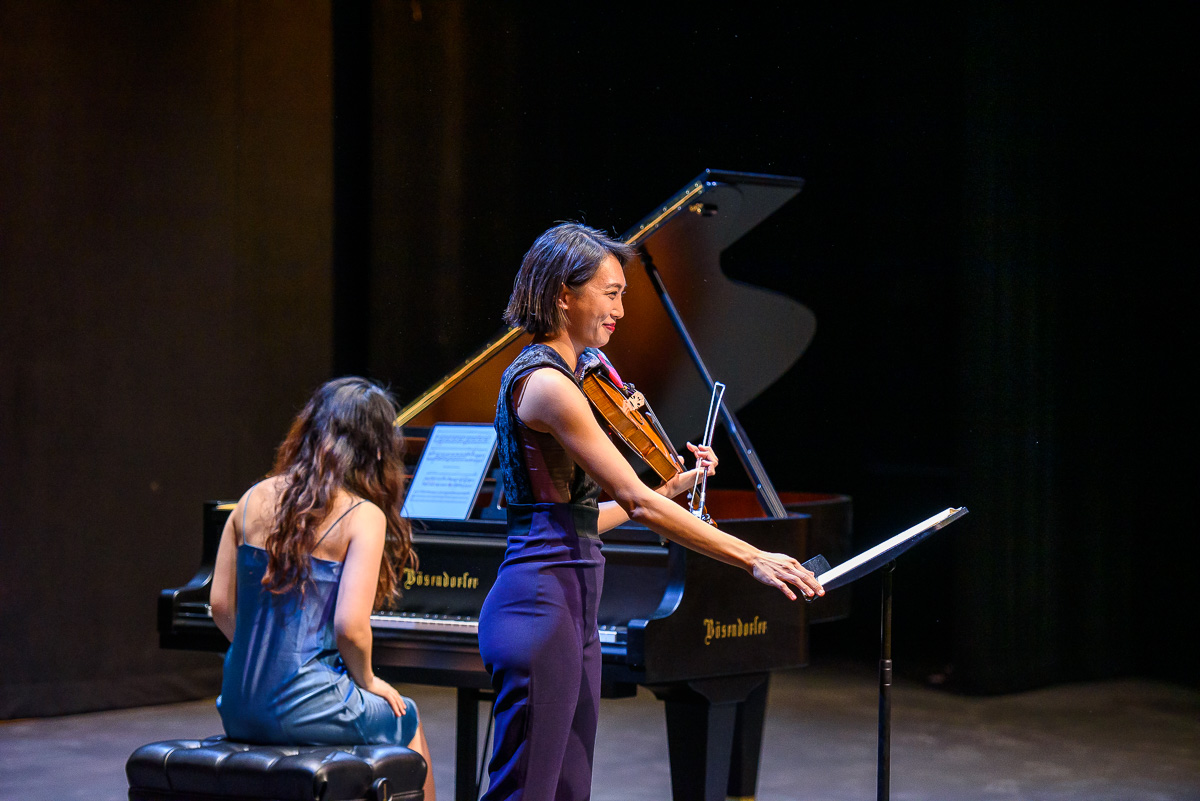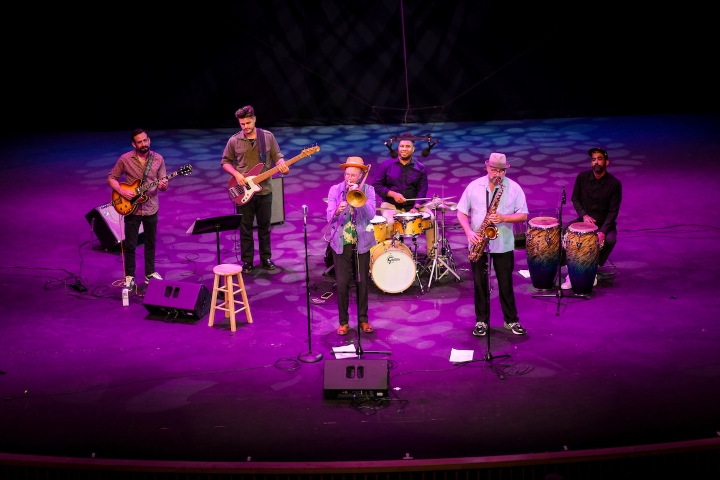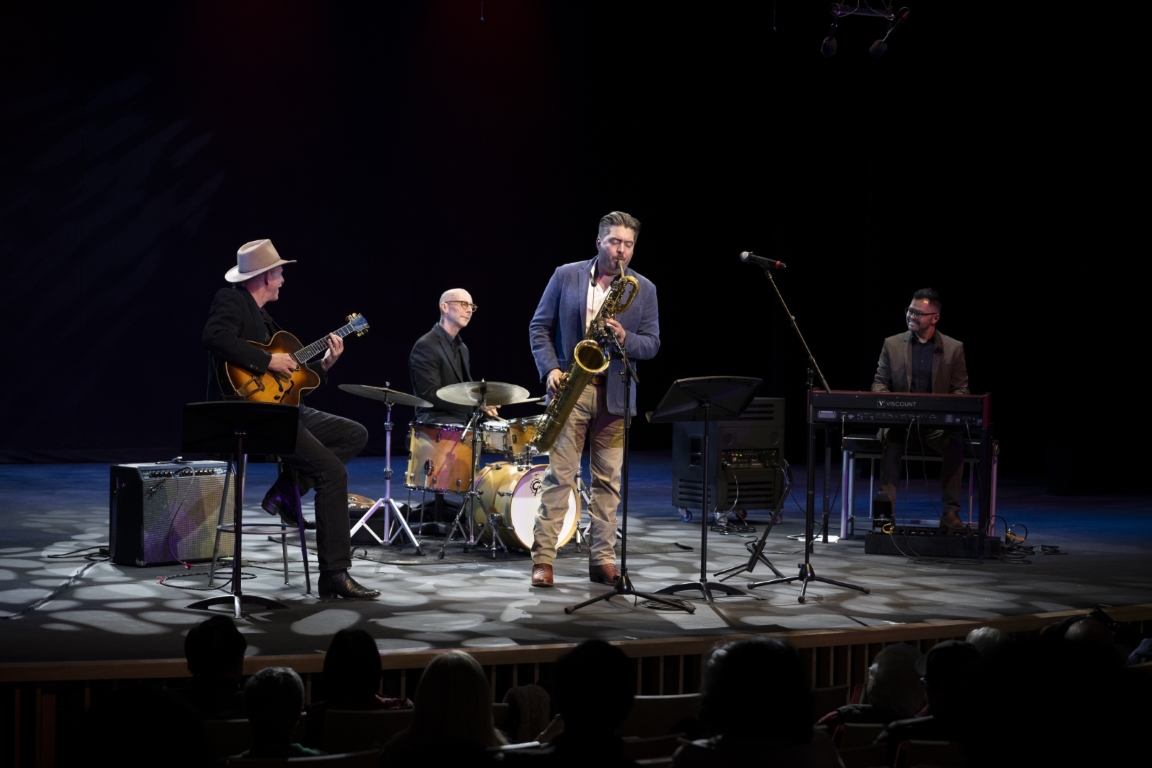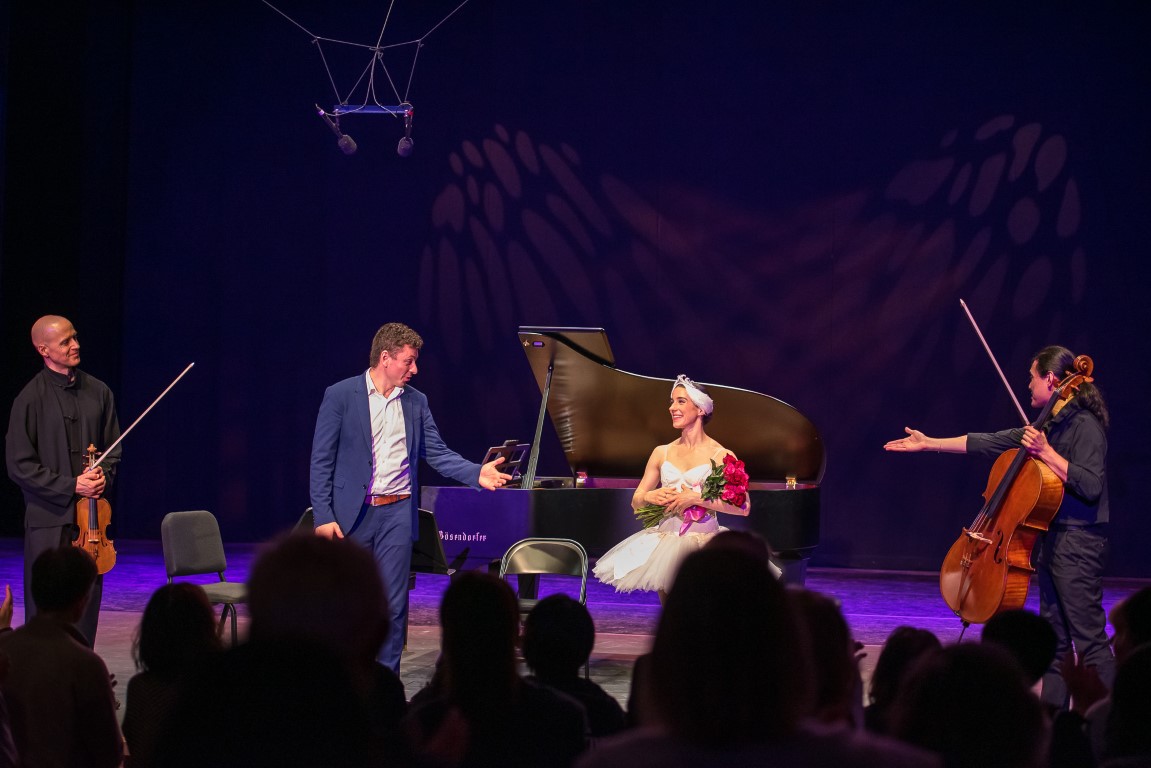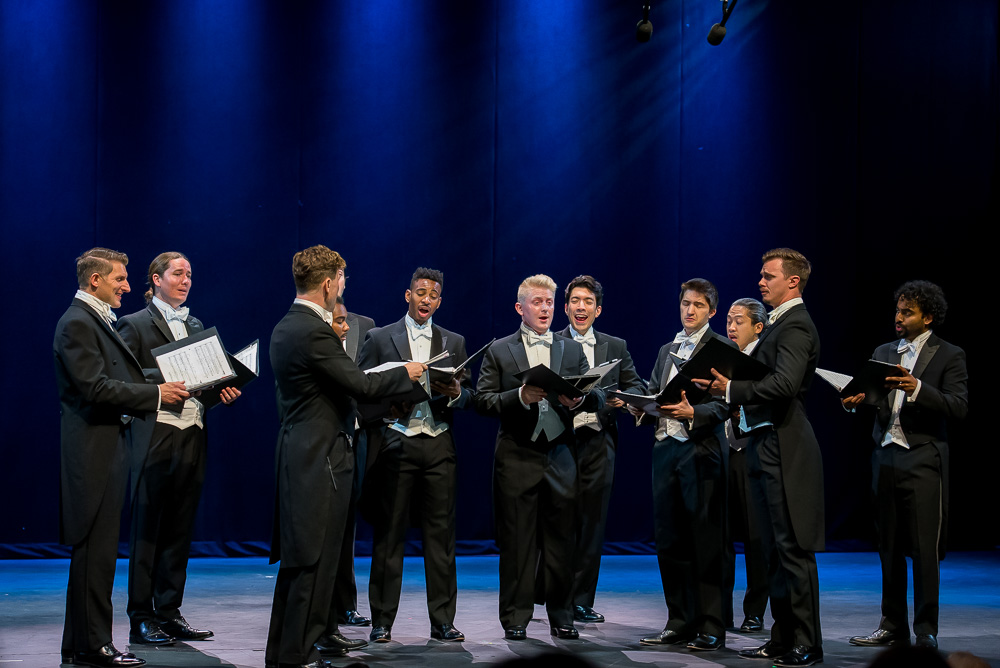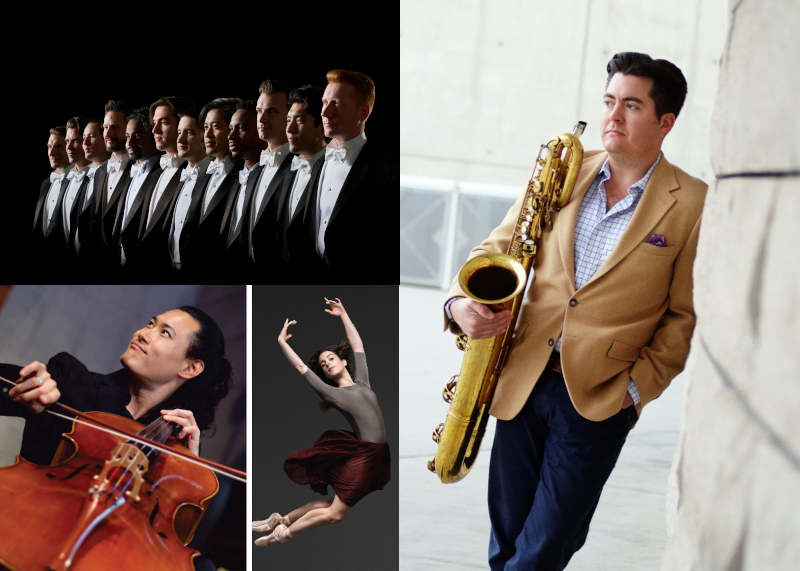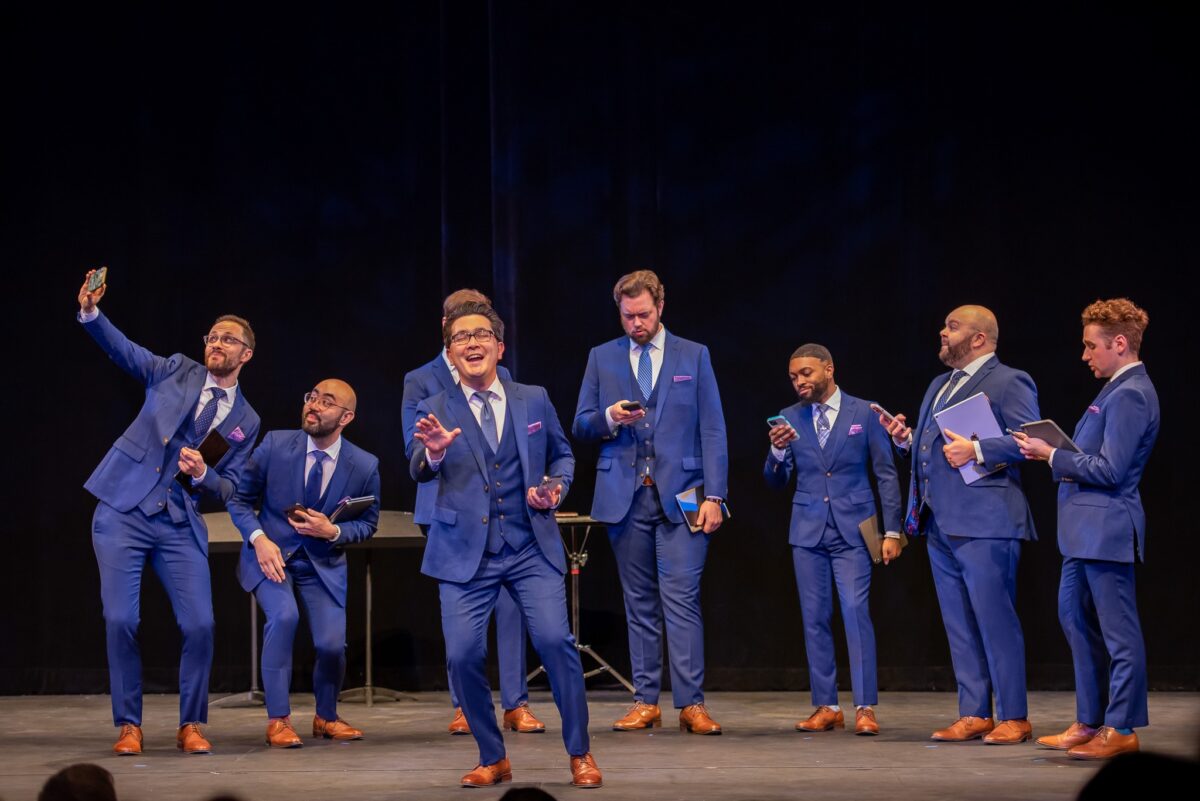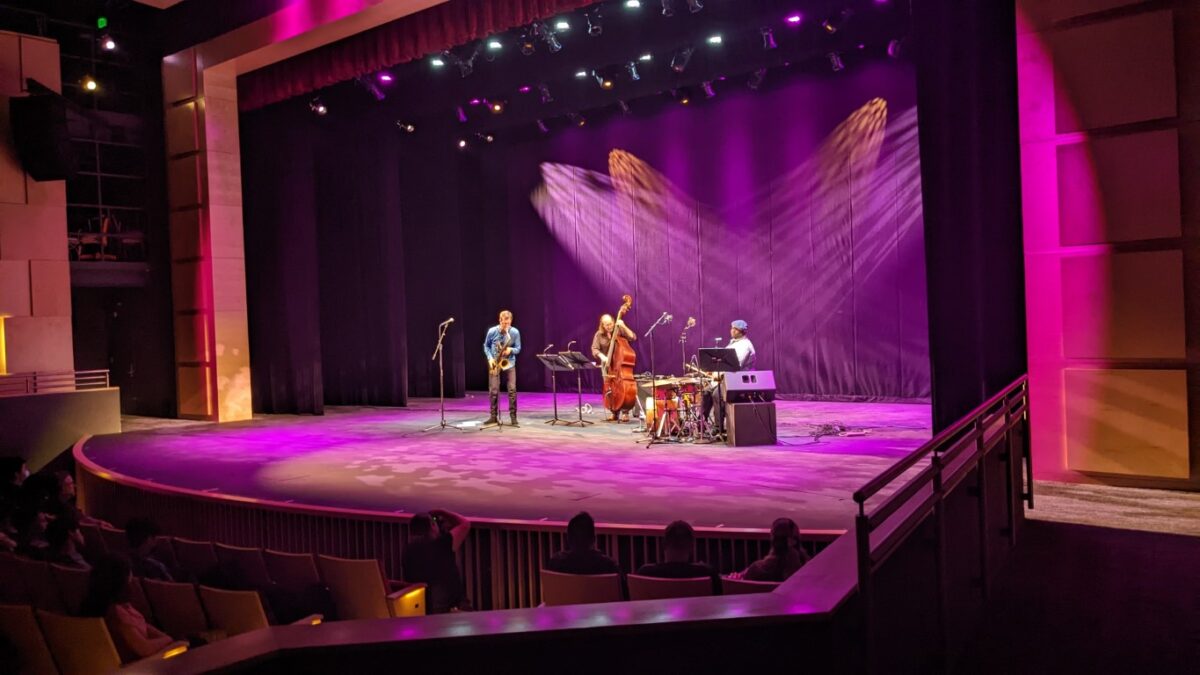Kirsten Edkins and her quintet opened the 14th season of the Harker concert series at the Patil Theater on Sept. 5.
Harker Concert Series
With broad repertoire, Poulenc Trio closes out Harker Concert Series season
The Poulenc Trio, joined by soprano Shawnette Sulker, closed out the 2024-25 season with a broad selection of pieces suited to their unusual oboe-bassoon-piano configuration.
Violinist Nancy Zhou packs Patil Theater for Harker Concert Series performance
Violinist Nancy Zhou played to a packed Patil Theater on Friday night, joined by San Francisco-born Serena Wang, a performer with major orchestras throughout China and the United States.
The Tropicales bring New Orleans flair to Caribbean sounds
New Orleans-based group The Tropicales opened the 2024-25 season of the Harker Concert Series on Friday with a sound inspired by the music of the Caribbean and forged in the Crescent City.
Aaron Lington Organ Quartet closes out Harker Concert Series season
The Aaron Lington Organ Quartet offered up a mixture of standards, rearranged popular songs and more at the final concert of the 2023-24 Harker Concert Series season.
Jonah Kim and Julia Rowe unite music and dance at Patil Theater
Cellist Jonah Kim and Julia Rowe – accompanied by pianist Dominic Cheli and violinist Moni Simeonov – played (and danced) for a near-capacity crowd at the Patil Theater.
Chanticleer dazzles with technique, harmony and diverse repertoire
2023-24 Harker Concert Series season: Tickets available now
This season will feature Chanticleer, the duo of cellist Jonah Kim and dancer Julia Rowe and saxophonist and composer Aaron Lington.
Cantus closes 2022-23 HCS season on uplifting note
The Twin Cities-based vocal ensemble delivered a diverse and creatively arranged collection of songs.
Donny McCaslin awes Patil Audience at Harker Concert Series
Saxophonist Donny McCaslin left the Patil Theater audience in awe at the second installment of the 2022-23 Harker Concert Series season.
